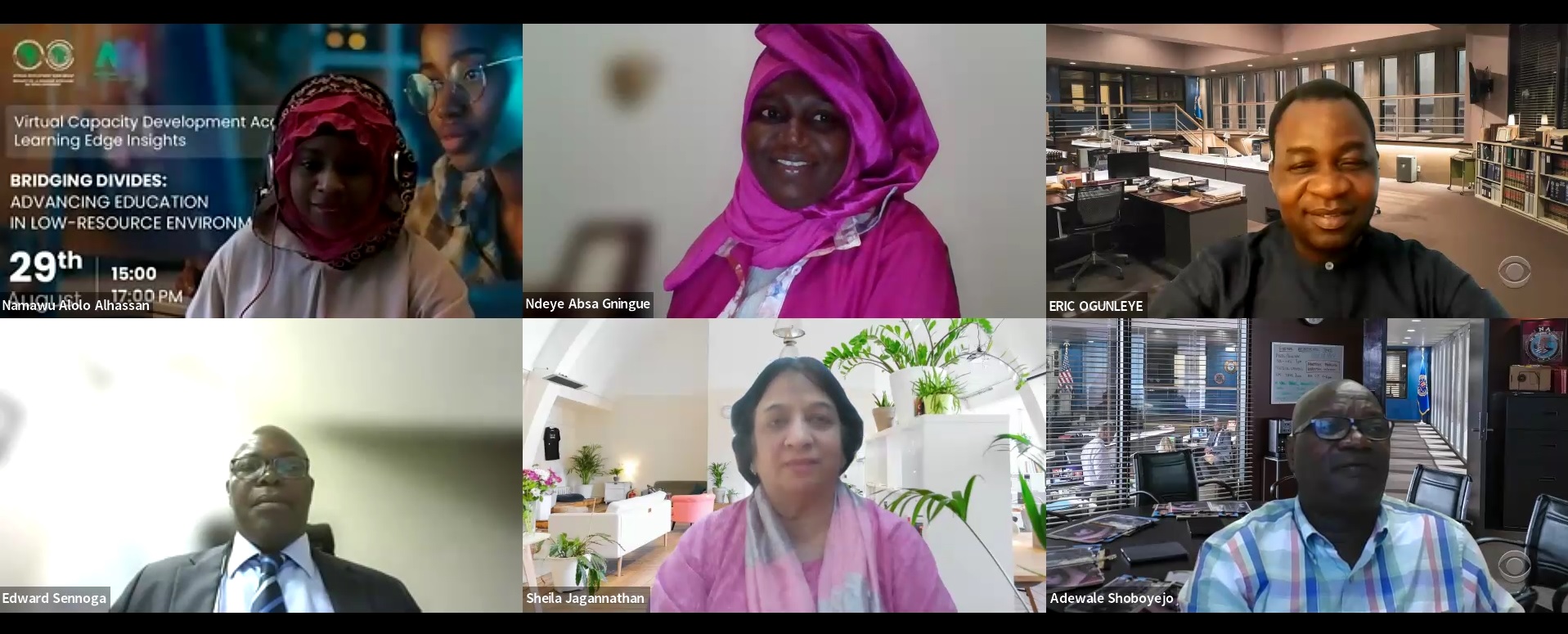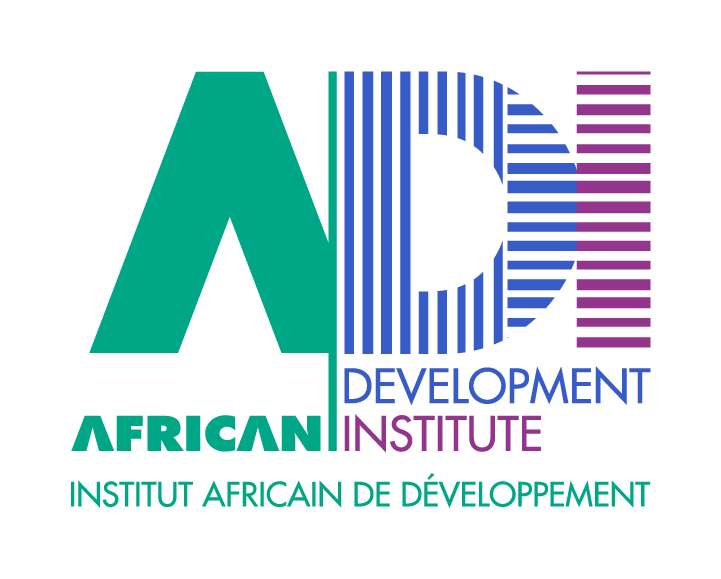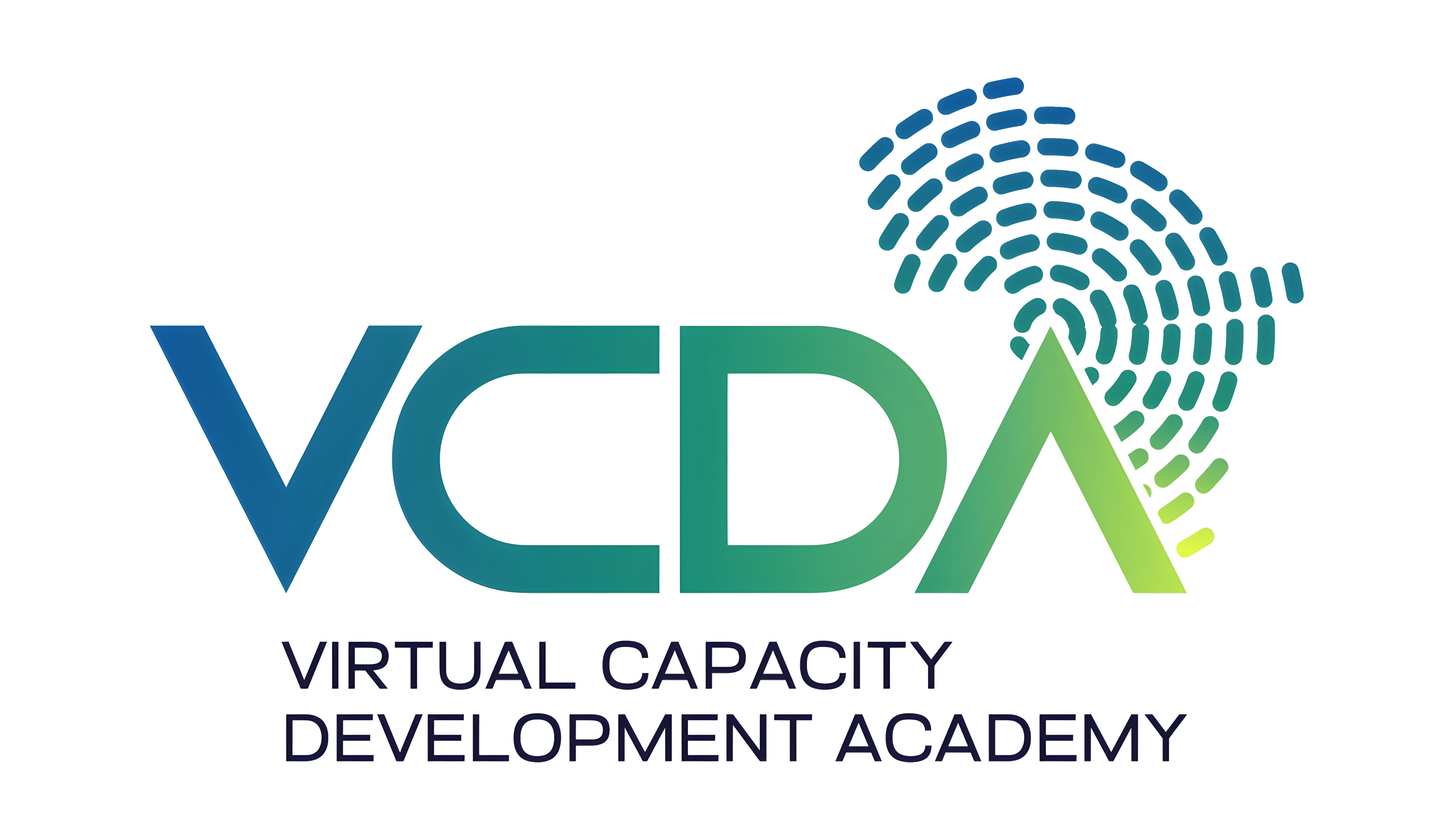
The webinar titled "Bridging Divides: Advancing Education in Low-Resource Environments," which the 3rd in AfDB's Leading-Edge Insights series, focused on the role of digital platforms in overcoming educational challenges in Africa. The session was opened by Edward Batt, Sennoga, Lead Economist, AfDB, who emphasized the transformative potential of digital learning across the continent. He highlighted the session's objective to explore sustainable strategies for scaling educational technologies, particularly in areas with limited resources.
Dr. Eric Kehinde Ogunleye, Director of the African Development Institute (ECAD) at AfDB, introduced the speakers and set the tone for the discussion, emphasizing the importance of adapting educational technologies to local contexts and overcoming infrastructure challenges. He also moderated the session and provided closing remarks, reinforcing the importance of collaboration and innovation in advancing education.
Dr. Paul Kim, Associate Dean and Chief Technology Officer at Stanford University’s School of Education, delivered a keynote on the importance of an ecosystemic approach to educational technology. He discussed examples like Rwanda’s national IT plan and the SMILE project, which demonstrated how mobile learning platforms can be effective in low-resource environments. Dr. Kim also highlighted the critical role of AI in education, advocating for personalized learning and scalable solutions to prepare students for a future dominated by automation and advanced technologies.
Following Dr. Kim's presentation, Mr. Adewale Shoboyejo, Training Technician at AfDB, introduced the Virtual Capacity Development Academy (VCDA). He explained how VCDA 1.0 which was launched in 2020 was the only channel of communication with RMCs during COVID. He highlighted the value of VCDA as a knowledge repository and the knowledge map and ask the expert features.
Dr. Sheila Jagannathan, senior advisor on digital transformation of learning and former Global Head of World Bank Digital Learning, provided an in-depth overview of enhancements planned for VCDA 2.0 which will be launched in May 2025. She discussed the phased implementation plan, which includes the deployment of a modular learning management system and expansion of the platform to accommodate a broader range of users. Sheila emphasized the importance of accessibility, flexibility, and inclusivity in modern learning platforms, and how VCDA 2.0 will address these needs.
The webinar also featured a presentation by Mrs. Ndeye Absa Gningue, Innovation Platform Officer at AfDB, who showcased the Innovation and Entrepreneurship Lab (Elab). She detailed how the Elab supports Africa’s youth by providing access to finance and technical support for early-stage entrepreneurs, as part of the Boost Africa program. The Elab has made significant progress in creating jobs, fostering innovation, and strengthening the entrepreneurial ecosystem across the continent.
Dr. Namawu, as the Manager of ECAD, was acknowledged for her role in managing the session and the broader Leading-Edge Insights series. Her leadership was instrumental in the smooth execution of the event and in aligning the discussions with AfDB’s strategic objectives.
The session concluded with an interactive Q&A, where participants engaged with the speakers on the challenges and opportunities of scaling educational technologies in Africa. Dr. Eric Kehinde Ogunleye closed the webinar by reiterating AfDB’s commitment to using digital platforms to advance education and capacity building in Africa. He urged continued dialogue and collaboration among stakeholders to ensure these innovative solutions effectively address the unique challenges of the region.


